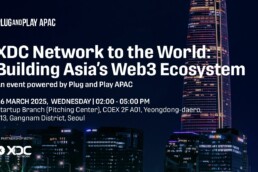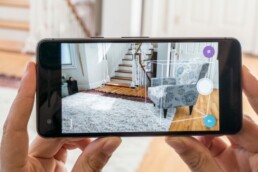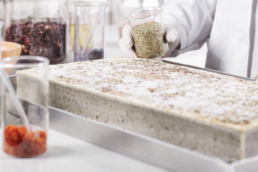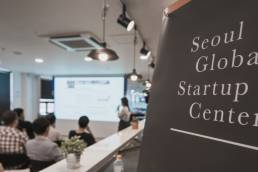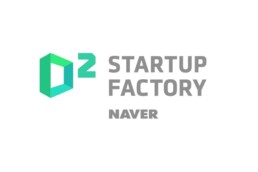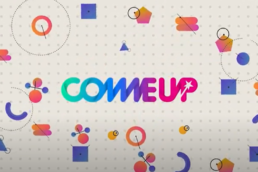The K-Startup Grand Challenge (KSGC) program is the most significant inbound global startup program that brings innovative foreign startups into South Korea. It is Asia’s first-of-its-kind “all-expenses-paid” program organized and hosted by the Ministry of SMEs and Startups and the National IT Industry Promotion Agency (NIPA). KSGC recruits passionate entrepreneurs and startups into the Silicon Valley of South Korea called Pangyo Techno Valley. Through the KSGC program, you can do immediate business with major Korean companies through professional accelerators.
KSGC has been running since 2016 and has contributed greatly to making South Korea a global startup hub in Asia. The program has raised awareness of Korea’s startup ecosystem. Therefore, the K-Startup Grand Challenge 2023 is the perfect program for foreign startups looking to break into the Asian market by first entering the South Korean market.
Why Should Foreign Startups Enter South Korea?
South Korea has the world’s 12th highest GDP at $1.5 trillion. But what separates South Korea from many other countries that rank above them is that consumers in South Korea are very tech-savvy and are known to embrace innovative products and services. Now factor in the fact that the Korean government is offering incentives to foreign startups, which makes entering South Korea an easy decision. Moreover, the KSGC was specifically designed to allow foreign startups to expand their business in South Korea.
Why Apply for K-Startup Grand Challenge 2023?
The K-Startup Grand Challenge is a startup accelerator program that attracts promising startups worldwide to come to South Korea and turn their ideas into successful businesses. Moreover, it offers startups access to a vast network of mentors, investors, and industry experts in South Korea. Therefore, global startups can meet major Korean companies and get various benefits including a $10,840 settlement per team for 15 weeks.
Entering the South Korean market is never easy, and it takes a lot of hard work and knowing the right people to succeed. However, foreign startups can thrive and grow their business in South Korea with the right support. That is the aim of the KSGC program. Find the many benefits the program has to offer below.
Program Timeline:
- Application Period: April 10 – May 18, 2023
- Application Review
- Global Audition Period: for all startups that passed the application – May 30 to Jun 2, 2023
- Result Announcement: Jun 15, 2023
- Orientation: July 25 – 26, 2023
- Acceleration Program: July 25 – November 10, 2023
- Demo Day: October 31 – November 2, 2023
- Follow-up Support Program: December 1, 2023 – March 29, 2024
Monetary Benefits for Startups

The KSGC is a 15-week paid acceleration program. Each startup will receive $10,840 to cover living expenses. At the end of the program, KSGC will host a demo day for the top 20 startups. In addition, these startups will get additional financial support, and if they decide to launch their business in Korea, they will get additional support. This is in addition to the prize money they could earn from the demo day. The top 5 startups will get the following prizes.
- 1st Prize: $120,000 (₩144,000,000)
- 2nd Prize: $70,000 (₩84,000,000)
- 3rd Prize: $40,000 (₩48,000,000)
- 4th Prize: $25,000 (₩30,000,000)
- 5th Prize: $15,000 (₩18,000,000)
In addition, 1 Korean intern will be provided for every 2 startups to help with translation and cultural barriers while doing business in Korea.
Access to Funding and Resources
Aside from funding, Startups in the KSGC can access office space, equipment, and resources to help them develop their products and services. In addition, all startups will be placed in Pangyo Techno Valley, which is also known as the “Silicon Valley” of South Korea. It is estimated that over 1,500 companies are currently based in Pangyo Techno Valley, making it a great place to grow your network quickly.
Mentoring and Networking Opportunities

The KSGC provides startups access to experienced mentors and industry experts. These regional mentors and experts can help develop their ideas and strategies for the Korean market. Furthermore, startups also get to network with other startups, investors, and industry leaders, which can lead to valuable partnerships and collaborations. The program offers 1-on-1 mentoring sessions, coaching in regards to doing business in Korea, Korean business culture lessons, and seminars on topics such as tax laws, patents, accounting, and regulations in Korea.
Past Success Stories
The KSGC has a proven track record of success. In 2022, over 2,653 startups from 122 countries applied to join the program. Of these, 60 were selected to participate, and many have gone on to achieve great success.
FreeD is a travel and lifestyle AI solution startup. The startup participated in the K-Startup Grand Challenge in 2016 and founded a Korean subsidiary one year after the program. Entering the Korean market through the K-Startup Grand Challenge gave the startup the right opportunities to develop their business. In 2018, FreeD participated in a startup fostering program by Samsung Electronics, which led to its first series A investment. Moreover, the company now has over 40 million users and attracted a series B investment of $15 million in 2022.
myFirst Technology is a Singaporean startup dedicated to helping kids adopt technology through fun and innovative gadgets. The startup participated in the program in 2022 and placed second. Brian Yonghui Tan, co-founder of myFirst technology, shares about the program:
“When you come to a new market, sometimes you’re not entirely sure who you work with is on your side. But with KSGC, there is no doubt. Everybody here is heard up to help your business succeed as much as possible. The KSGC program is an ideal situation because you’re going to be able to hit the ground running and do business as much as possible in such a short time.”
It shows that the K-Startup Grand Challenge is an excellent opportunity for startups looking to turn their ideas into successful businesses. Moreover, with access to funding, resources, mentoring, networking opportunities, exposure to the Korean market, and support from the government, startups can thrive in South Korea’s vibrant startup ecosystem. Therefore, this is a great opportunity that global startups should not pass up. Applications close May 18th so don’t delay and apply as soon as possible through the KSGC application page. Good luck and hope to see you thrive in Korea through KSGC!
Popular
Related Posts

